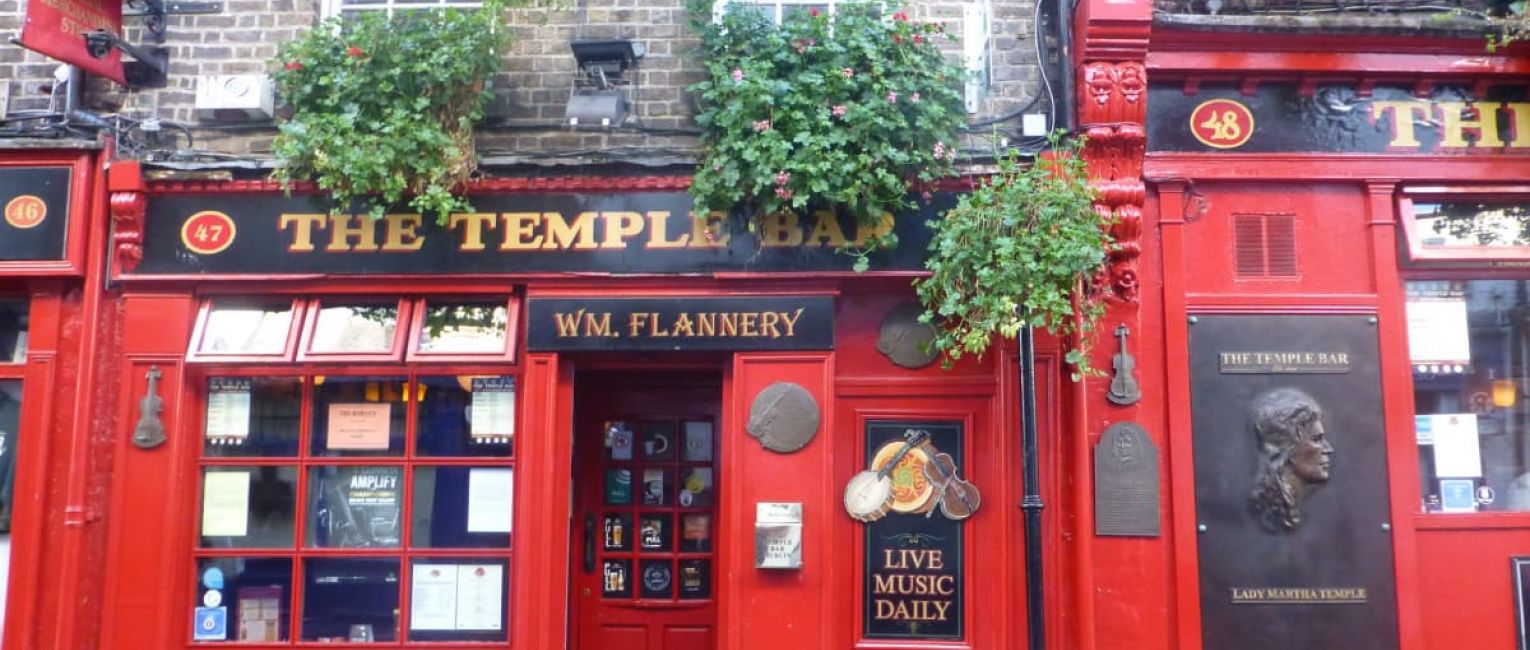
Irelands Food Tourism
To the uninitiated, this might come as news. Yet, Ireland is fast making a name for itself on the global culinary scene, cementing its status as a top destination for food tourism.
From hearty traditional dishes to modern culinary innovation, Ireland really does have it all.
In this article, we'll take you beyond the emerald hills and valleys and instead, on a delightful journey through the heart of Ireland exploring its culinary traditions, diverse flavors, and the best destinations for food enthusiasts.
.jpg)
Why is food tourism important in Ireland
When it comes to experiential travel, at Bikehike, we believe that exploring the culinary delights of a country through food tourism is essential in order to fully appreciate the rich flavors and traditions of the country.
And, Ireland is no different.
.jpg)
Food tourism in Ireland extends beyond culinary treats; for travelers, it serves as a cultural immersion experience that connects you intimately with the history, people, and traditions of the Emerald Isle.
Additionally, for the destination itself, food tourism helps fuel local economies by supporting family-run farms and artisan producers who keep age-old techniques alive as well as cultivating innovation.
Does Ireland have a food culture?
Ireland has a burgeoning food culture, that seems to be more and more prevalent each time we visit. With its strong emphasis on food culture the use of local ingredients, and a focus on “farm-to-table” Ireland is absolutely a destination for food lovers.
As you journey throughout Ireland you will have no problem stumbling across a local farmers' markets bursting with organic produce or quaint cafes serving fresh local food or coming upon the many food festivals and events.
These food focused events are growing in popularity, with multiple events held throughout the seasons celebrating each unique culinary tradition.
Ireland's love for food even extends beyond just consumption; it is intertwined with socialization too. Traditional pubs serve as community hubs where stories flow as freely as pints of Guinness - while enjoying traditional meals.
Why is Ireland so good for food?
Ireland is known for its agriculture, and Irish cuisine celebrates both the land and sea. One of the reasons why Ireland is so good for food is its commitment to using fresh, locally sourced ingredients.
.jpg)
Irish dairy products are renowned for their quality and flavor and are a mainstay of the local diet. Irish cows are grass-fed, which makes their milk richer in flavor and fatty acids than cows raised on grain.
So the Irish butter, cream, and cheese are especially delicious.
Even artisan cheese is a popular industry in Ireland. From cheddar to blue cheese, Irish farmers are producing some of the tastiest cheese in the world.
And of course, Irish beef is highly sought after, especially grass-fed beef, for its deep flavor and tenderness.
Ireland’s culinary scene has undergone a remarkable revolution in recent years. The country is blessed with an abundant supply of high-quality local produce which forms the backbone of its flourishing foodie culture.
Pairing these natural ingredients with innovative recipes and techniques has led to an explosion in innovative gastronomy.
What is the most popular food in Ireland
One popular dish emerges as an iconic favourite - Irish stew.
.jpg)
Irish stew was originally conceived as sustenance for cold weather (which in Ireland is almost always) and a meal for hard laborers such as farmers. This humble yet flavorful meal has held onto its title firmly over centuries due to its simplicity to prepare and versatility in ingredients.
Irish stew perfectly embodies traditional Irish cuisine. A simmering pot of everything great, usually combining mutton or lamb, potatoes, onions and other vegetables; it's literal comfort in a bowl!
Although, when you ask the locals what is the most popular food in Ireland, there's quite a debate. Some back up the claim that Irish stew is what they are known for, but it’s not always the most popular.
Others argue that the most popular Irish food is the traditional Irish breakfast with a combination of sausages, bacon, eggs, black pudding, and soda bread.
Then in the coastal towns, they claim that it's the iconic fish and chips, with perfectly fried fish, chips made from locally sourced potatoes, and served with a side of tartar sauce.
With so many options, it's hard to pinpoint just one. But if we'd to choose, we'd say that the most popular food in Ireland is a tie between Irish stew and the traditional Irish breakfast.
Ireland's Culinary Regions
Each region in Ireland is unique, reflecting the country's varied landscapes and traditional farming practices. Let’s take a look at the 3 most popular culinary regions of Ireland.
Cork
Our first stop is Cork.
Cork is located on the South of Ireland, and sits on an island in the middle of the River Lee. It’s a small yet bustling city, with miles upon miles of countryside and small villages, each offering a wide array of different cuisinse.
The cornerstone of Cork’s gastronomic fame lies in its famed English Market that has been serving locals since 1788. The English Market is a nineteenth-century market building decorated by ornate vaulted ceilings and columns, packed with local vendors anda buzz of shoppers from early morning to late afternoon.
The other farmers markets sprinkled across Cork offer another facet to explore. These weekly pop-ups see small-scale producers come together offering everything from meat, homemade jams and cheeses to handpicked berries straight off their fields. And of course, an opportunity for direct interaction between consumers and producers.
Around Cork you can find numerous farm-to-table restaurants with local produce while showcasing their unique take on traditional Irish cuisine. From gourmet establishments such as Ballymaloe House which serves up dishes like sea bream caught off the coast that very day paired with seasonal garden vegetables or Longueville House offering home reared pork teamed with apple brandy sauce - there is something incredibly satisfying about knowing the story behind what’s being served at your table.
Galway
This vibrant city in Western Ireland is mostly known for its lively arts scene and rich history, but is garnering a reputation for its gastronomic gems, earning it a solid reputation as one of the country's premier food destinations.
Delving into Galway’s food scene reveals a world where traditional Irish cuisine meets inventive gastronomy.
From fresh seafood caught off the coast of Connemara to organic produce harvested from nearby farms, each morsel tells an intricate story that weaves together elements of culture, heritage and love for good food.
In particular pay attention to Galway's iconic Quay Street - an epicurean epicenter filled with quaint cafes, bustling pubs and award-winning restaurants that cater to any palate or preference.
Look out too for local markets such as Moycullen Market or The Galway Market near St Nicholas' Church; these are sanctuaries where artisanal producers share their bounty with locals and visitors alike.
Don’t miss out on sampling ‘Connemara Smokehouse’ smoked salmon which has earned renown for its delicate flavor infused by beechwood smoke over time-honored process. And if oysters are your thing? Look no further than Moran’s Oyster Cottage – an institution since 1797 serving up some of the world’s finest Atlantic oysters.
Dublin
Dublin showcases the very best of Ireland's popular culinary regions, leveraging fresh local produce to create inviting culinary experiences that are equally sustainable. The city is teeming with restaurants that put organic ingredients into the spotlight.
From farm-to-table bistros serving hearty Irish stews brimming with locally-sourced vegetables, to upscale eateries presenting exquisitely plated dishes featuring organic meats sourced from nearby farms - there’s something for every palate in Dublin.
Organic food markets also play a pivotal role in shaping this dynamic food scene. The Temple Bar Food Market remains an essential stop for foodie. Here you can sample artisan cheeses made from raw milk or pick up freshly baked sourdough bread topped with locally produced preserves - just two examples of how passionate producers contribute towards enhancing and diversifying Ireland's vibrant food tourism landscape.
Where is the food capital of Ireland
Most travelers find themselves drawn to the actual capital - Dublin.
But the locals will usually tell you, and as we mentioned above, that Ireland's food capital is actually – Cork!
What really makes Cork stand out as the food capital, is its commitment towards sustainability and local sourcing.
Many restaurants here emphasize 'farm-to-table,' celebrating local growers and seasonal ingredients in their menus which not only ensures superior quality but also supports the regional economy.
As you travel through Cork, you'll notice a common theme: an unwavering dedication to local produce and homegrown ingredients.
Cork's rich farmlands serve as a primary source for fresh vegetables, dairy products, meats and even beverages like cider and craft beers. Restaurants across the city have embraced this advantage wholeheartedly in their menus - showcasing precisely what 'farm-to-table' means in practice.
It isn't merely about serving dishes created from locally sourced ingredients; it’s about celebrating sustainable agriculture while enhancing the dining experience with regional flavors.
Happy Travels,
Trish Sare
About The Author
 Trish Sare is the owner of BikeHike and a passionate outdoor enthusiast with over 30 years of experience as a world traveler. She's lived, traveled, and guided extensively in North, South and Central America, Europe, Oceania, Africa, and Asia. She has guided and helped to develop every one of our multi-sport holidays. In her spare time, Trish is usually outdoors either mountain biking, hiking, sea kayaking, trail running, or climbing. Trish has a passion for the world and all of the amazing cultures that inhabit it and does her best to immerse herself directly into their distinctive lifestyles.
Trish Sare is the owner of BikeHike and a passionate outdoor enthusiast with over 30 years of experience as a world traveler. She's lived, traveled, and guided extensively in North, South and Central America, Europe, Oceania, Africa, and Asia. She has guided and helped to develop every one of our multi-sport holidays. In her spare time, Trish is usually outdoors either mountain biking, hiking, sea kayaking, trail running, or climbing. Trish has a passion for the world and all of the amazing cultures that inhabit it and does her best to immerse herself directly into their distinctive lifestyles.